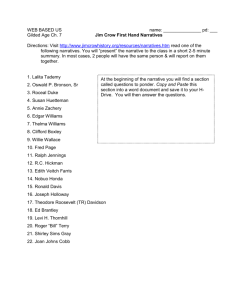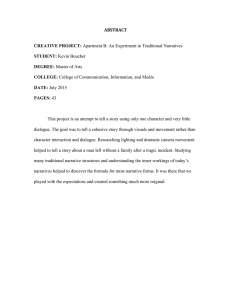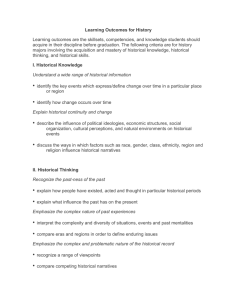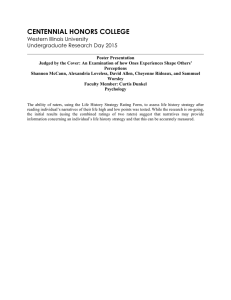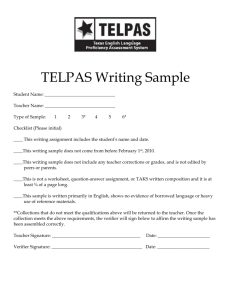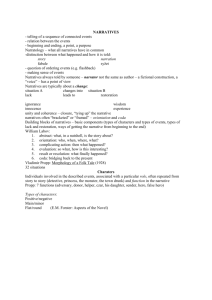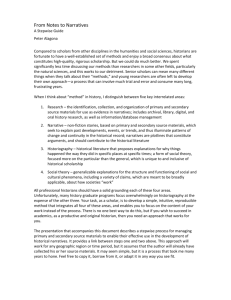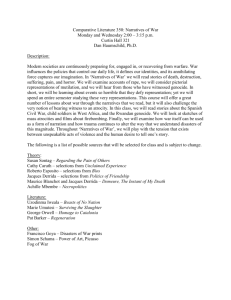Report Forum I History and memory culture and
advertisement
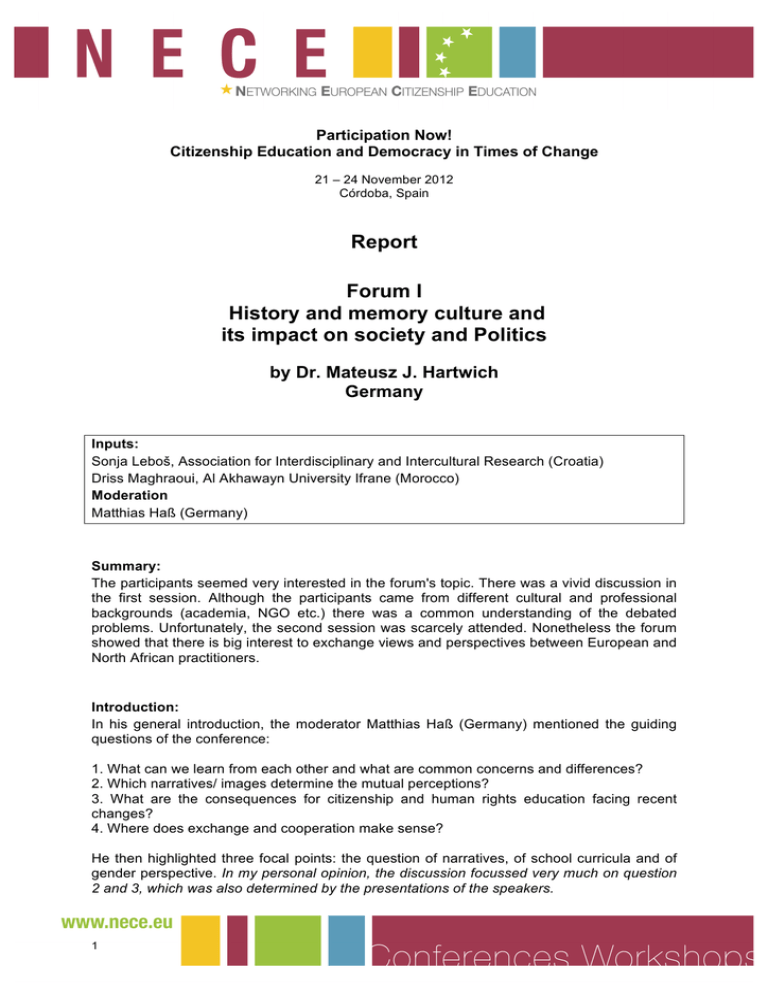
Participation Now! Citizenship Education and Democracy in Times of Change 21 – 24 November 2012 Córdoba, Spain Report Forum I History and memory culture and its impact on society and Politics by Dr. Mateusz J. Hartwich Germany Inputs: Sonja Leboš, Association for Interdisciplinary and Intercultural Research (Croatia) Driss Maghraoui, Al Akhawayn University Ifrane (Morocco) Moderation Matthias Haß (Germany) Summary: The participants seemed very interested in the forum's topic. There was a vivid discussion in the first session. Although the participants came from different cultural and professional backgrounds (academia, NGO etc.) there was a common understanding of the debated problems. Unfortunately, the second session was scarcely attended. Nonetheless the forum showed that there is big interest to exchange views and perspectives between European and North African practitioners. Introduction: In his general introduction, the moderator Matthias Haß (Germany) mentioned the guiding questions of the conference: 1. What can we learn from each other and what are common concerns and differences? 2. Which narratives/ images determine the mutual perceptions? 3. What are the consequences for citizenship and human rights education facing recent changes? 4. Where does exchange and cooperation make sense? He then highlighted three focal points: the question of narratives, of school curricula and of gender perspective. In my personal opinion, the discussion focussed very much on question 2 and 3, which was also determined by the presentations of the speakers. 1 First Session: The first presentation was from Driss Maghraoui from the Al Akhawayn University Ifrane in Morroco, who discussed the question of national memory politics in Morocco. He further spoke about the search for alternative memories against hegemonic memory of the state. Official commemorative politics has been a “political resource“ in the Mediterranean Region, and thus selectively chosen, marketed and consumed. Mr. Maghraoui mentioned the fact that historians often are active members of political, mostly nationalist, parties. Therefore, national history would have been written as a sort of “dynastic history“. Sonja Leboš from the Association for Interdisciplinary and Intercultural Research in Croatia introduced in her speech a project called “Theatre of memories“ and highlighted the importance of artistic forms of interaction with the past. She referred to the situation in Croatia, where new emerging forms of questioning themselves 20 years after the war can be observed. The more important is an individual approach to history, thus questioning official narratives. Discussion: In the discussion participants often referred to the relation of power and history politics. The questions of who rules the archives, and of what is being regarded as worth archiving and what is not, were mentioned. The distinction between history as research topic and individual memory was discussed, as well as the form history is taught in schools. There were also some questions addressed to the audience, like the role of civil society in Germany's process of evaluating the past (Vergangenheitsaufarbeitung). An interesting point made by the participants was the role of new media forms, e.g. “Youtube”, and “subaltern forms“ of memory, like oral history projects. The intercultural history project was introduced, and the role of language and culture discussed. In the re-run of the forum there was less engaged discussion but some interesting points were made, like the comparability of East European experiences and recent developments in North Africa, or different perspectives on African History, e.g. the spatial perception of the continent in Europe and the USA. The question of “national canons“ and “official history“ was again discussed. At the end of the session, the moderator Matthias Haß pointed out the question of citizenship education, again. He summarised that it is important to educate “critical thinkers“, who find their own way of interpreting history. Finally, the problem of the lack of training in active citizenship in transformation countries was mentioned. The strongest point made by both speakers Sonja Leboš and Driss Maghraoui and then touched upon in the discussion was the distinction between “official“ history created by the state through public commemoration and school curricula, and alternative forms of dealing with the past – from individual approaches to family or local history and memory, to internetbased platforms. In discussing the interaction of both levels e.g. in school history projects, participants exchanged experiences from different backgrounds and new ideas. Only at the end of the first session participants were willing to write their impressions and findings on metaplan cards. There were 15 responses on the guiding questions, of which the most interesting were, according to the rapporteur Mateusz J. Hartwich: 1. What can we learn from each other? What are common concerns and differences? Your history and memories are not mine but that's OK 2 2. Which narratives/ images determine the mutual perceptions? Largely shaped by mainstream media that widely reproduce same images + narratives (jump on popular views instead of questioning them). 3. What are the consequences for citizenship and human rights education facing recent changes? In these time of change, where power remains in the hands of states/ media & markets, it is up to citizens to create their own understanding of history thus challenging nationalist narratives. 4. Where does exchange and cooperation make sense? Intercultural/ cross-cultural/ international history education only works through cooperation & exchange; mutual respect comes with (more) knowledge about „the others“ → need for (youth) exchange & study visits in all directions. Conclusion: The general outcome of the forum was the exchange of views and perspectives. From the discussion and the written feedback one could get the impression that the intended goal has been achieved: the participants realised that there is no “one and only“ history and that history is mostly written and taught at schools from the perspective of state actors. Maybe the contrast between “official history“ and subjective responses to “subaltern“ memory was too strong, but there was definitely a common ground on these distinctions among the participants, despite cultural and professional differences. There was a big interest of North African participants on European experiences in post-World-War-II and post-communist transformation. They also made clear that a critical comprehension of national history politics is still to achieve in their respective countries. Besides the discussion on the general topic and the arguments of both presenters and the moderator, there seemed to be an interest in practical issues, like the methods and contents of history education in schools, cultural and linguistic aspects of transnational projects, and the question of sources. Probably it would be worth while to present particular projects in future conferences and discuss them in relation to general problems, or to let the workshop participants develop a project together, either virtual or real. The time given for both forums would be enough to carry out the task. 3

